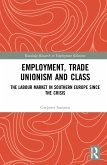With growing concern about the conditions facing low wage workers and new challenges to traditional forms of labor market protection, this book offers a timely analysis of the purpose and effectiveness of minimum wages in different European countries. Building on original industry case studies, the analysis goes beyond general debates about the relative merits of labor market regulation to reveal important national differences in the functioning of minimum wage systems and their integration within national models of industrial relations. Investigating the pay bargaining strategies of unions and employers in cleaning, security, retail, and construction, this book's industry case studies show how minimum wage policy interacts with collective bargaining to produce different types of pay equity effects. The analysis provides new findings of 'ripple effects' shaped by trade union strategies and identifies key components of an 'egalitarian pay bargaining approach' in social dialogue. The lessons for policy are to embrace an inter-disciplinary approach to minimum wage analysis, to be mindful of the interconnections with the changing national systems of industrial relations, and to interrogate the pay equity effects.








